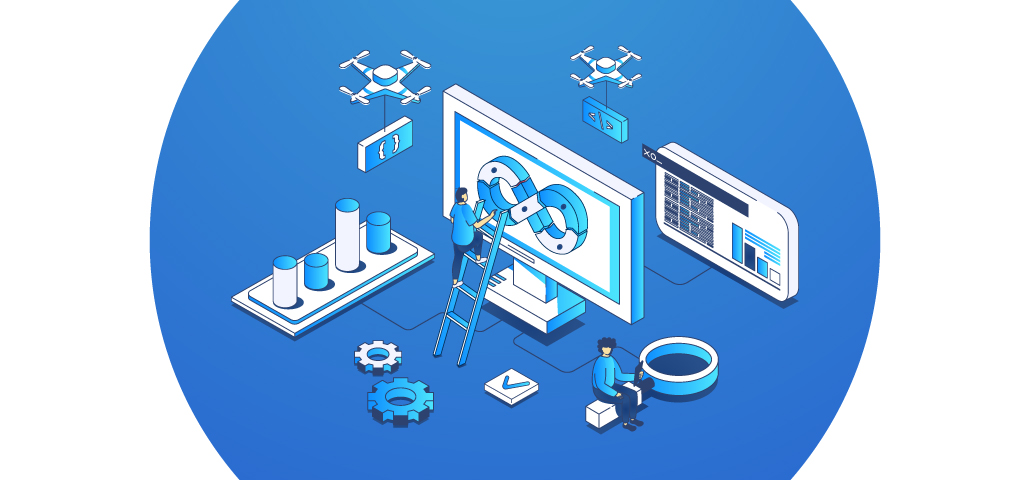How to Hire DevOps Engineer for Your Project?
 Admin
Admin DevOps
DevOps Dec 06, 2024
Dec 06, 2024

Table of Content
Are your software releases delayed or are your development and operations teams not working in sync? If yes, you’re in the right place. In this post, we're going to help you master the art of hiring DevOps engineers. We’ll dig into what they do, what skills they need, and how to identify the right fit for your team. By the end of this guide, you'll know exactly how to bring on a DevOps engineer who can help your business reach new heights, all while avoiding the common pitfalls along the way.
It’s a big task—but we’ve got you covered.
Who is a DevOps Engineer?
DevOps engineers might have some of the most misunderstood roles in tech right now. They aren’t just developers or IT admins—they're the glue that brings both worlds together. DevOps engineers help companies deliver software faster, automate boring and repetitive tasks, and create a solid bridge between the development and operations teams.
They do this by using tools and processes that speed up everything—from code testing to cloud management. They don’t just make things run; they make them run smoother and faster. And if you’re feeling like your projects could use a little boost in reliability and speed, that’s a solid reason to start looking for one.
Here’s the kicker: The global DevOps market is projected to reach $32.7 billion by 2028, growing at a massive CAGR of 24.5%. That’s because more companies are realizing that DevOps is a huge part of the formula to keep up with evolving tech demands. If you’re in the tech game and trying to stay ahead of the curve, hiring a DevOps engineer isn't just an option—it’s a must.
The Skills That Make a Great DevOps Engineer
Okay, so what exactly should you be looking for? The term "DevOps" is tossed around a lot, and it can mean different things depending on the company. But if you’re trying to hire someone who can actually make a difference, you’ll want them to bring both technical know-how and a collaborative mindset to the table.
Here are the core skills every great DevOps engineer needs:
- Cloud Platforms They should be comfortable with cloud platforms like AWS, Azure, or Google Cloud. The cloud is their playground.
- Automation & CI/CD Pipelines Jenkins, CircleCI, GitLab—these tools are their bread and butter. They set up devops pipelines to get your code tested and deployed faster.
- Infrastructure as Code (IaC) Tools like Terraform or Ansible let them automate your infrastructure. No more manually configuring servers.
- Containerization Docker for containers and Kubernetes for managing them. These tools help to deploy services consistently, no matter the environment.
- Monitoring & Security A great DevOps engineer knows how to monitor systems with tools like Prometheus or Grafana and ensures that security is baked in from the start.
And then there’s the softer side—because DevOps isn’t just about the tech. It’s about getting people to work together in a smarter way. They need to be good at communicating with developers and IT folks, bridging gaps, and making sure everyone is working towards the same goal.
How to Find and Hire the Right DevOps Engineer
So, how do you actually go about finding a DevOps engineer? Here are a few places you should consider:
Partner with IT Companies
This might be the easiest route, especially if you need results quickly. Cloud consulting companies (like ours, Prioxis) have DevOps engineers ready to hit the ground running. You won’t need to go through a lengthy hiring process, and it’s perfect for when you need to scale up fast.
Recruitment Agencies
If you’ve got a bit of time but don’t want to handle the search yourself, recruitment agencies can be handy. Just make sure they understand the specific skills a DevOps engineer needs, so they send you the right kind of talent.
Collaborate with Freelancers
For small projects or one-off jobs, freelancers can be a solid option, but sometimes they lack relevant experience compared to an established software consulting partner. Platforms like Upwork are filled with professionals who might be able to help you tackle specific needs. Keep in mind, though, they won’t be the long-term solution if you're looking to build DevOps into your company culture.
Create an In-House Team
If you’re aiming for a long-term solution and have the resources, building an in-house DevOps team can pay off big time. It might take longer and cost a bit more, but it allows for greater alignment with your company’s mission.
The Cost of Hiring DevOps Engineers: What to Expect
When it comes to hiring, cost is always a question mark. DevOps engineers aren’t exactly cheap, especially with the rising demand.
Here’s a quick look:
- United States Expect to pay around $60-$100/hour depending on experience.
- Western Europe Rates hover between $50-$90/hour.
- Asia (India) Rates are more economical, generally ranging between $30-$70/hour.
If you’re looking for affordability without sacrificing quality, nearshoring or hiring overseas talent might be the way to go. You get the same skill level for a much lower price point, and it’s increasingly common to build distributed teams this way.
A Step-by-Step Process to Hire a DevOps Engineer
1: Get Clear on What You Need
Think about your company's specific needs. Do you need someone to help with cloud migration, set up continuous integration, or overhaul your security processes? Knowing exactly what you're looking for will help you find the right fit.
2: Write an Engaging Job Description
This part is crucial. Don’t just list out the skills you need—sell the opportunity! Talk about what makes your company unique, the projects the DevOps engineer will get to work on, and how they can make a real impact. This isn’t just about attracting talent; it’s about attracting the right talent.
3: Source Candidates
Look to platforms like LinkedIn or Glassdoor, but also consider reaching out to specialized recruitment agencies or consulting firms. The DevOps community is pretty connected—posting in niche tech forums might yield good results too.
4: Interview for Both Skills and Culture
The interview should go beyond just checking off skills. Sure, ask about their experience with Docker, AWS, or Kubernetes—but also dig into their approach to solving problems and working within a team. A great DevOps engineer isn’t just technically capable—they’re a great communicator, and they know how to work across teams to get things done.
5: Smooth Onboarding is Key
Once you’ve found the right fit, make sure the onboarding is seamless. Introduce them to your teams, get them acquainted with your systems, and make sure they understand your company’s culture. Continuous feedback is essential, especially in the first few months.
Why Hiring DevOps Engineers is Worth It
You might be wondering—do the benefits justify the costs? Spoiler alert: they do. Here’s why.
1. Faster Releases
DevOps engineers can significantly speed up your software release process. By setting up automated testing and deployment pipelines (think Jenkins, GitLab CI), they get your products to market faster. Less manual work, fewer errors, and happier customers.
2. Better Scalability
Scaling an application isn’t as simple as spinning up a new server. It’s about making sure every piece fits perfectly together—even as your product grows. DevOps engineers bring a level of expertise that ensures your systems can grow without falling apart.
3. Security Built-In
With DevSecOps principles, DevOps engineers integrate security right into the pipeline. That means fewer surprises down the line and fewer security vulnerabilities keeping you up at night.
Questions to Ask During the Interview
Hiring someone isn’t just about getting the right skill set—it’s about finding someone who fits your team’s dynamic. Here are a few must-ask questions to help you find the perfect DevOps engineer:
- How do you incorporate security into your processes? DevOps isn’t just about speed; it’s about doing things safely too. Look for a balanced approach that incorporates automation and security measures.
- Can you talk about a time you optimized a CI/CD pipeline? You're trying to gauge their experience, problem-solving skills, and how they prioritize efficiency.
- Describe a challenging situation with automation and how you overcame it. DevOps is all about automation, but the journey is often rocky. You want someone who’s got the scars and learned from them.
Tips for Building a Solid DevOps Team
- Find Versatile Candidates Don’t just hire someone for their cloud skills. Look for someone who’s comfortable navigating between development and operations.
- Prioritize Collaboration Skills DevOps is about working with others, not in isolation. A collaborative engineer can make all the difference.
- Think Big Picture Hiring isn’t just about the immediate need. How does this person fit into your future plans?
Why Prioxis Might Be the Partner You Need
We know what you’re thinking—"Here comes the pitch." But hear us out. Hiring DevOps talent isn’t easy, and going through the entire process can be overwhelming. Prioxis has years of experience matching businesses with highly skilled DevOps engineers. We've done the legwork, so you don’t have to. We understand what you need, and we make sure you get it—no shortcuts, no compromises.
The Bottom Line
Hiring a DevOps engineer is a big decision, but it’s a game-changer if done right. They help bring speed, reliability, and collaboration to your tech environment. If you’re ready to improve your software development process, cut down on bugs, and scale up efficiently, a solid DevOps engineer is the way forward.
And if the hiring process feels like too much to tackle alone, remember—you don’t have to do it alone. We at Prioxis are always here to help guide the way.
Get in touch

